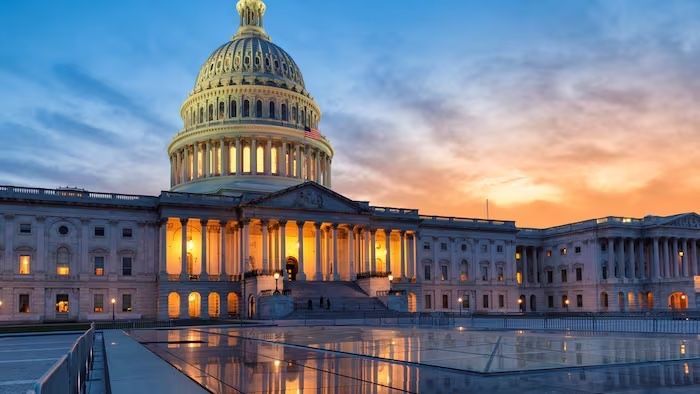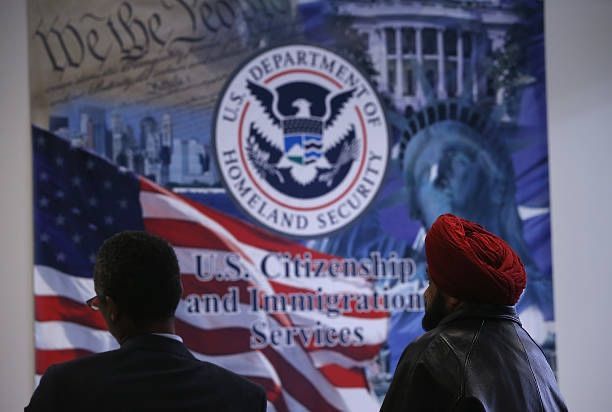With the new administration taking office, many in our communities feel uncertain about the current immigration enforcement actions — and rightfully so.
While this newsletter does not constitute legal advice, we wanted to share some general guidance to help individuals prepare and safeguard their rights and those of others during these uncertain times.
Know Our Constitutional Rights.
It’s essential for everyone, regardless of immigration status, to be aware of key rights, which include:
- The right to remain silent
- The right to legal representation
- The right to refuse to open your door for enforcement agents unless they have a judicial warrant
If agents say they have a warrant to enter a home or non-public areas of a business, you can ask if they have a judicial warrant and ask for a copy if they say yes. If your door is closed, you may ask them to slide it under the door. In some cases, agents may try to pass off administrative warrants as judicial warrants. Know that judicial warrants must come from a court.
Unlike a judicial warrant, an administrative warrant does not authorize searches of private areas. To identify an administrative warrant, look for language that says, “Department of Homeland Security” “Form I-200” or “Form I-205."
Know Our Federal Government’s Priorities

- Individuals who have been ACCUSED, charged, or convicted of a criminal act;
- People who have been ordered removed (or deported) and never left the United States;
- Those who pose a risk to public safety or national security and have any affiliation with a gang or terrorist organization
- Those individuals who recently entered the United States and should not have been admitted (including those who entered legally on parole)
- Those who have reentered the U.S. without permission after having been removed or deported
Be Prepared and Have a Plan

Please consider having a power of attorney in place for someone to be able to take care of your children and business on your behalf. This includes the need to sell your property, close bank accounts, etc. In addition, consider providing a designated family member with a California Caregiver’s Authorization Affidavit which can be found here: https://www4.courts.ca.gov/documents/caregiver.pdf.
For additional information on family preparedness please visit https://www.ilrc.org/resources/step-step-family-preparedness-plan#item-4324 and download their toolkit.
Additionally, keeping tabs on what’s going on through reputable sources and consulting with legal professionals is crucial to making well-informed decisions and avoiding fraudulent services.
Beginning February 11th at 5:00 p.m. and every second Tuesday of the month, thereafter, we will be hosting a ZOOM meeting for our clients and contacts so that they can get reliable information and have an opportunity to ask questions. This meeting will be bilingual in Spanish and English. To register, please sign up here: https://us02web.zoom.us/meeting/register/A9rkov9nS3qYjp3ip4yi2g
In addition, beginning February 25th at noon and every fourth Tuesday of the month, thereafter, we will host a ZOOM meeting for our community partners where we can share our observations, experiences, information, and best practices. This meeting will be in English only. To register please sign up here: https://us02web.zoom.us/meeting/register/02Qcrls5QbyhI07R9BS3yQ
Executive Orders

- Overturn Birthright Citizenship
– this was ruled “blatantly unconstitutional” by a federal court judge. A proposal to amend the U.S. Constitution would require 2/3 of Congress to vote in favor of the amendment and 3/4 of the states would need to agree. Nearly half of our states (22 to be exact) mounted a legal challenge. Therefore, there is no need to be concerned about you or your children born in the United States from losing their citizenship.
- Schools and Churches are no longer off limits to ICE Enforcement
– again, the reversal of the Biden Administration’s policy not to enforce our immigration laws at schools and churches, merely puts us back where we were prior to this Biden policy going into place. Regardless, this does not change our laws as to what’s considered a private versus a public space. ICE cannot enter private spaces (important that each campus designate and label private spaces/areas) without a judicial warrant. Again, knowing your rights is critical if confronted by federal immigration officials in public spaces.
- No asylum seekers can enter the U.S. and armed forces will be used at the Southern Border
– many patiently waiting for their CBP1 appointment were disappointed to have their appointments immediately canceled. The program has been terminated, and we have reverted to the “Remain in Mexico Program.”
- It will be harder to get visas and benefits – there will be a heightened level of scrutiny when travelers (including non-immigrant visa holders and legal permanent residents with criminal histories) attempt to enter the U.S. or apply for a visa abroad. There have already been numerous reports regarding ports of entry overstepping and denying entry based on formal and informal Presidential and agency declarations. As best practice, take extra caution when traveling and applying for any immigration benefit.
Changes to Immigration Laws & Policies

This bill signed into law on January 29, 2025, directs federal immigration enforcement to subject those without legal status with minor theft or shoplifting, assault of a law enforcement officer, or criminal accusations resulting in death or serious bodily injury of another person to mandatory detention. This law skips the current practice of waiting until someone is charged and convicted before trying to deport them. It will be difficult for this law to be implemented as a practical matter, especially in states whose law enforcement agencies do not cooperate with federal immigration law enforcement. Takeaway: stay out of trouble.

Despite the Biden Administration having extended TPS for Venezuelans and several other countries before leaving office, the Trump Administration has vacated this designation. Therefore, the government will revert to the TPS guidance from October 2023. This essentially means that come October 2, 2026, Venezuelans will no longer be protected from deportation nor have work authorization unless they have another way of remaining in the United States.
Please stay abreast of the latest news, as we anticipate that additional countries currently with this protection may lose it as well.
In the coming weeks, please don’t hesitate to reach out if you have any questions or need assistance. We’re here to help however we can, no matter what happens.
U.S. Immigration Law Group, LLP is a full-service immigration law firm, built on integrity and committed to
providing exceptional service to our clients and our community.


